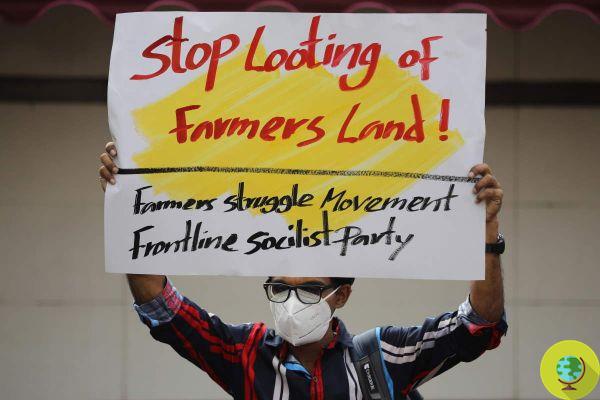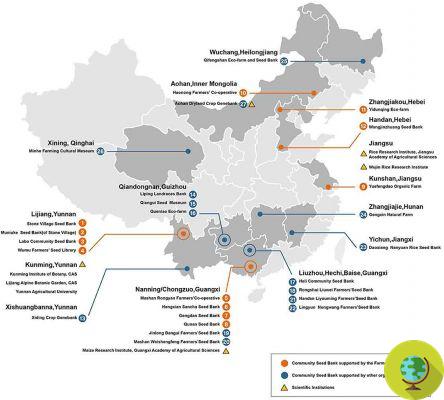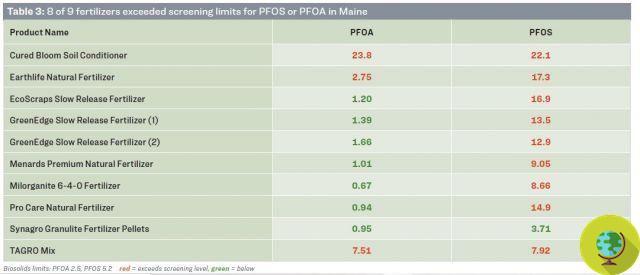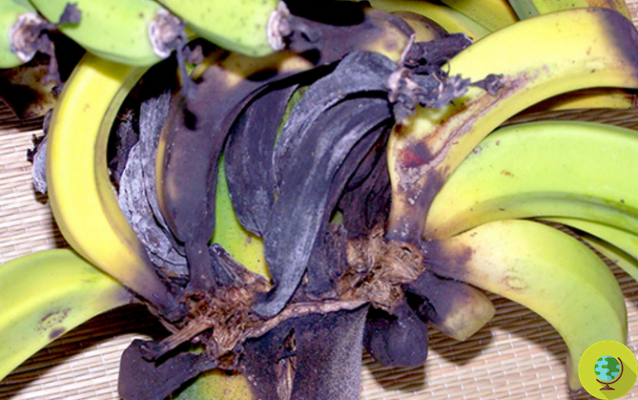
Millions of peasants are paralyzing India and will continue to do so. They protest against 3 laws that would favor multinationals
He is about to end up run over, his mother saves himMillions of peasants have been paralyzing India since last October in a very hard confrontation with the current government. And they will continue to do so. They protest against 3 laws that would favor multinationals
India will celebrate the 26nd anniversary of Indian Republic Day on January 72th. While in New Delhi, as usual, a majestic parade is expected, a traditional symbol of the military power and cultural pluralism of the Indian nation, tens of thousands of Indian farmers will flock to the capital to participate in a large protest demonstration with tractors, which will extend for 50 kilometers, along the Delhi ring road, the Outer Ring Road. Other similar demonstrations will take place in the rest of the country.
Farmers are calling for the repeal of the three agricultural laws, enacted in September, which they believe could make them vulnerable to retail giants like Walmart Inc and India's Reliance Industries.
Index
Waves of demonstrations awaiting January 26th
Farmer groups plan to participate in counter-demonstrations across the country. Sit-ins are scheduled in Delhi in front of government offices in the days before the Republic Day (January 20-25); on the occasion of Republic Day on January 26, members of farmers' organizations and trade unions therefore announced further protests, located in different areas of the country precisely to intensify the anti-government campaign. The protesters' aim is to call for the repeal of the controversial agricultural laws passed by the government of Prime Minister Narendra Modi at the end of 2020.
The object of the dispute
In India, numerous peasant organizations and various opposition parties contest the three agrarian amendments introduced by the executive in September 2020. In their view, the new measures would favor the interests of large multinationals of the sector, to the detriment of local agricultural producers. The Indian government, on the other hand, believes that recent legislation is capable of raising agricultural income by promoting the direct participation of farmers in a free-competitive market, without prejudice to the protections guaranteed to farmers by the direct and state-managed market sectors. Prime Minister Narendra Modi defends the initiative, which in his opinion would increase the degree of circulation of agricultural products not only among Indian states, but also within each individual state. Government supporters assure, for example, that the system of purchasing rice and grains by public agencies will not be dismantled. His detractors predict, on the other hand, that state deposits will struggle to compete with large multinationals in a more competitive agricultural market.
At the origin of the protests
The peasant protest, which started in November 2020, first culminated in the weekend of November 27-29, when over 300.000 farmers, from the Indian states of Punjab and Haryana, marched in protest - both on foot and on board. of tractors - to the Indian capital. Last December, other waves of demonstrations shook the country. Pickets and protest marches involved farmers from the states of Haryana, Uttar Pradesh and Punjab, who created unrest in the capital by blocking local traffic. Indian peasants continue to demonstrate because they fear that recent legislative innovations could undermine the system of guarantees ensured by the state-government system, hitherto based on the fixing of minimum prices taxable on agricultural products, to protect the income of local producers.
Unresolved problems
According to the India Brand Equity Foundation (IBEF), 58% of the Indian population is dependent on agricultural work. The increased frequency of severe droughts has impoverished Indian farmers, whose socioeconomic condition is aggravated by the Covid-19 pandemic. As already mentioned, the legislation approved at the end of September, which liberalizes the agricultural market, forces Indian farmers to sell to anyone at any price, thus exempting them from the obligation to give crops to state deposits at a fixed price. It is mainly farmers with small plots of land who are asking for the reform to be dismantled and for the previous centralized system to be restored. Alternatively, they demand the guarantee of a minimum taxable price on their products.
The government crackdown does not spare social media
Many protesters belong to the Sikh religious minority, which for months has been engaged in a counter-information battle to deny the allegations spread on social media by the ruling Hindu nationalist party, the Bharatiya Janata Party (BJP) (Indian People's Party). The BJP led by Modi attributes the label of "separatists" to some of the demonstrating peasants, accusing them of wanting to break away from the great multi-ethnic Indian nation. The recipients of the media attack, who deny the instrumental accusations made by the party in power, inevitably continue in the struggle.
Sources: Reuters / IBEF / Guardian
Read also:
Sonia Gandhi won't celebrate her birthday today (and the agricultural multinationals won't like the reason)

























